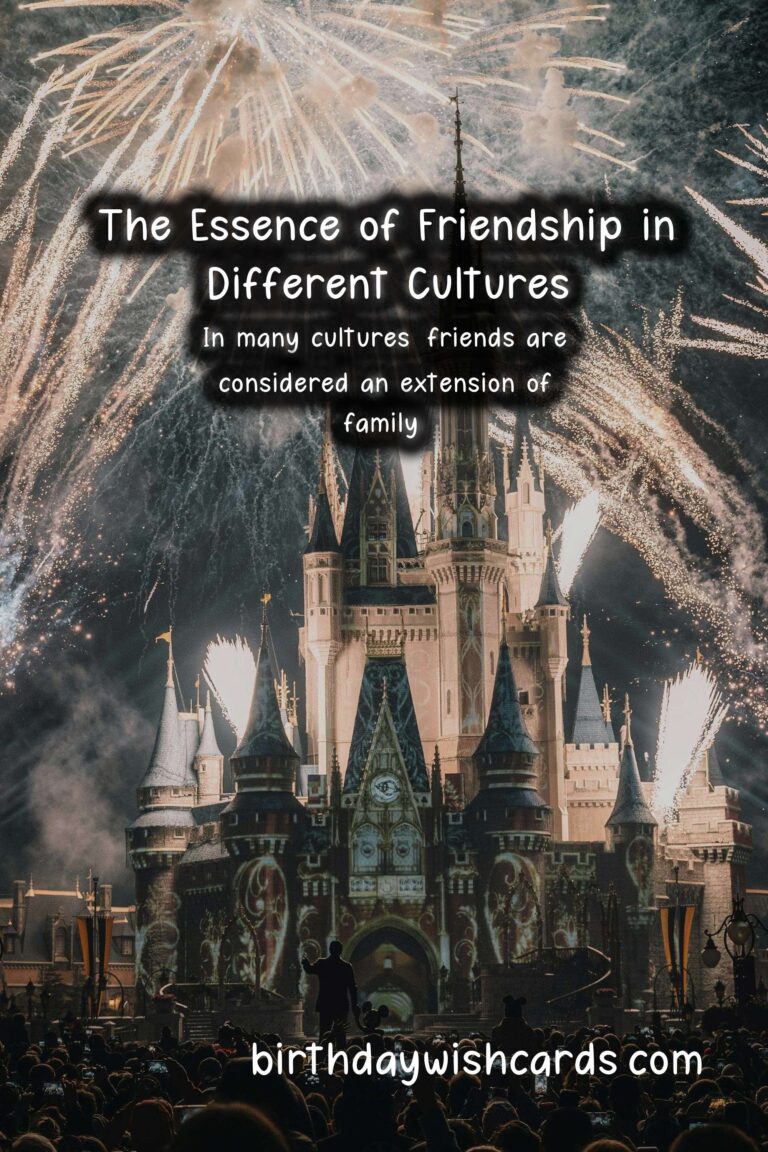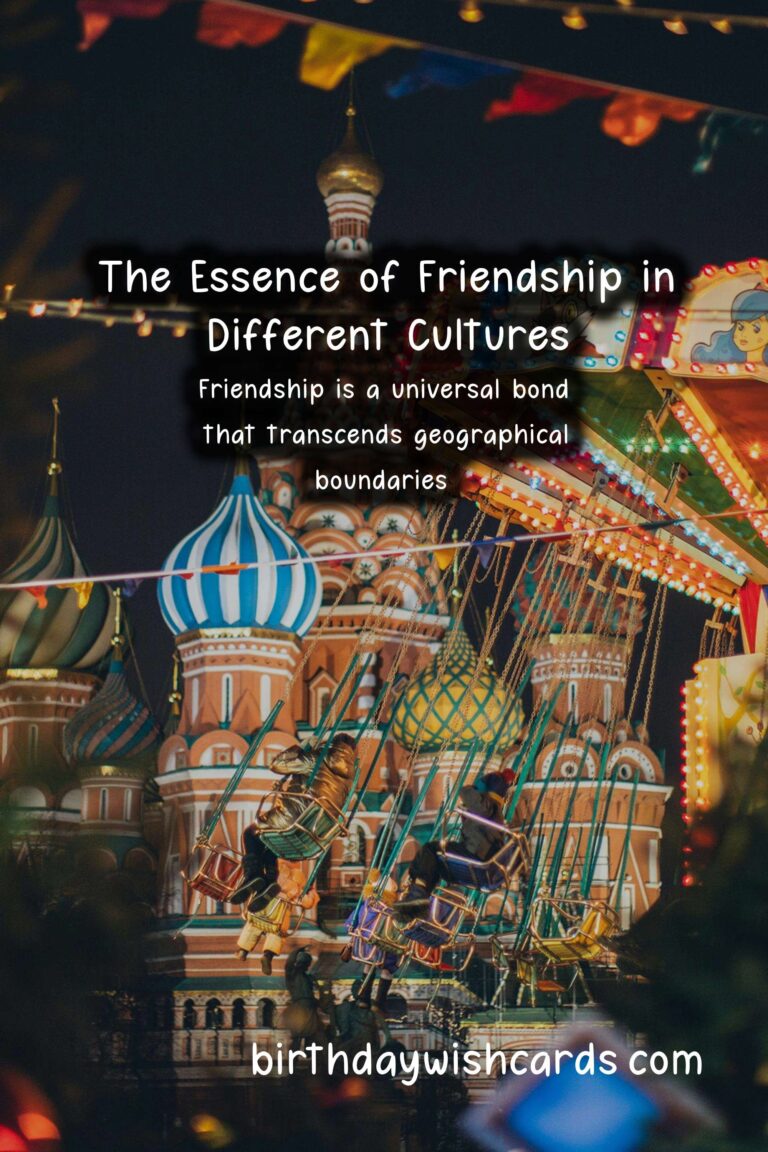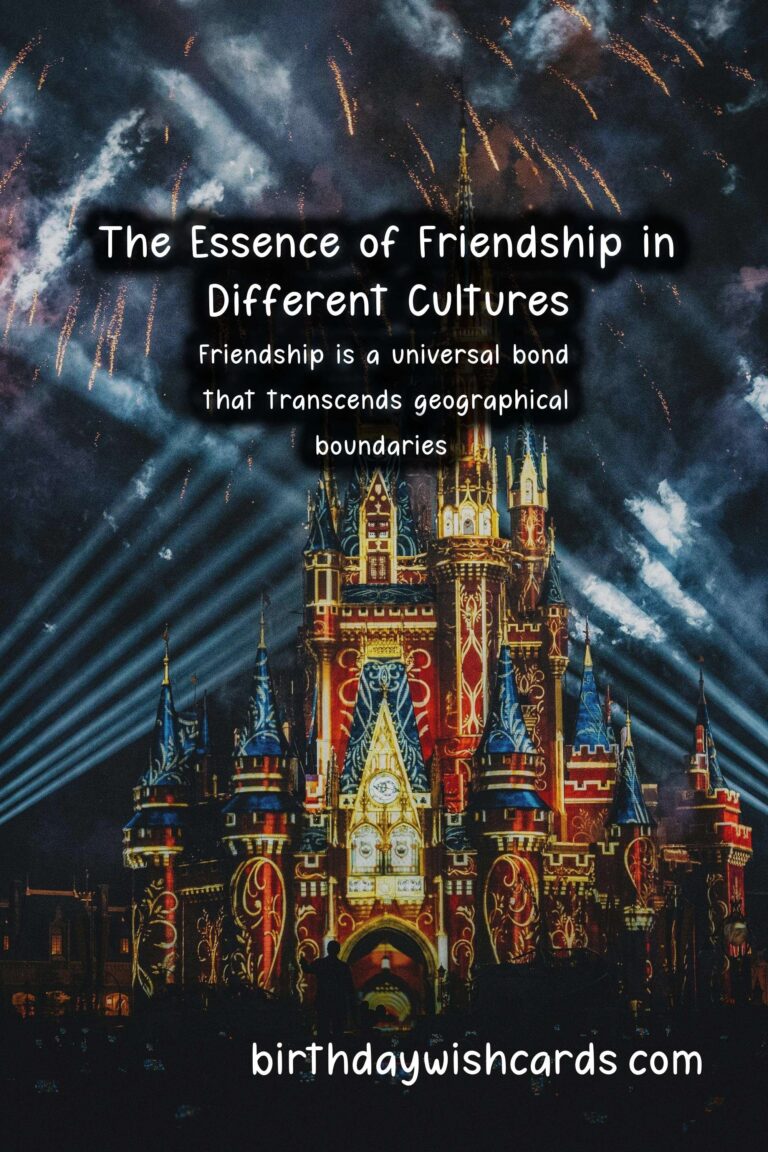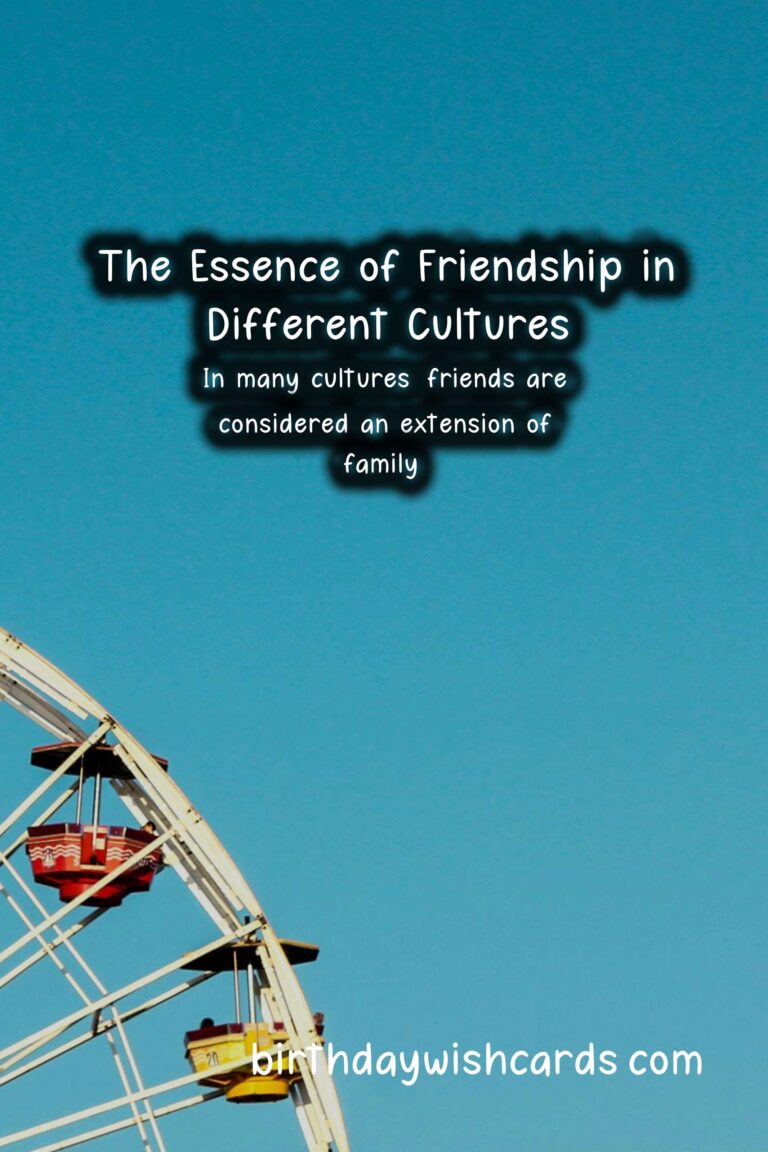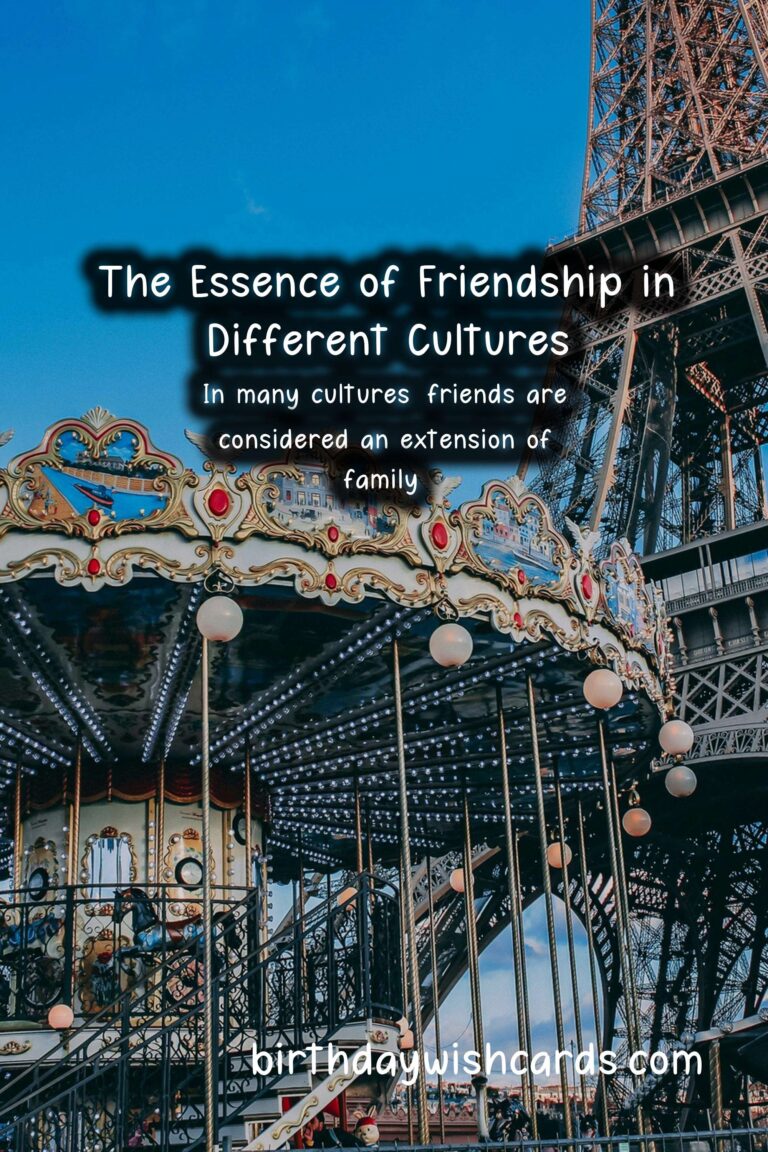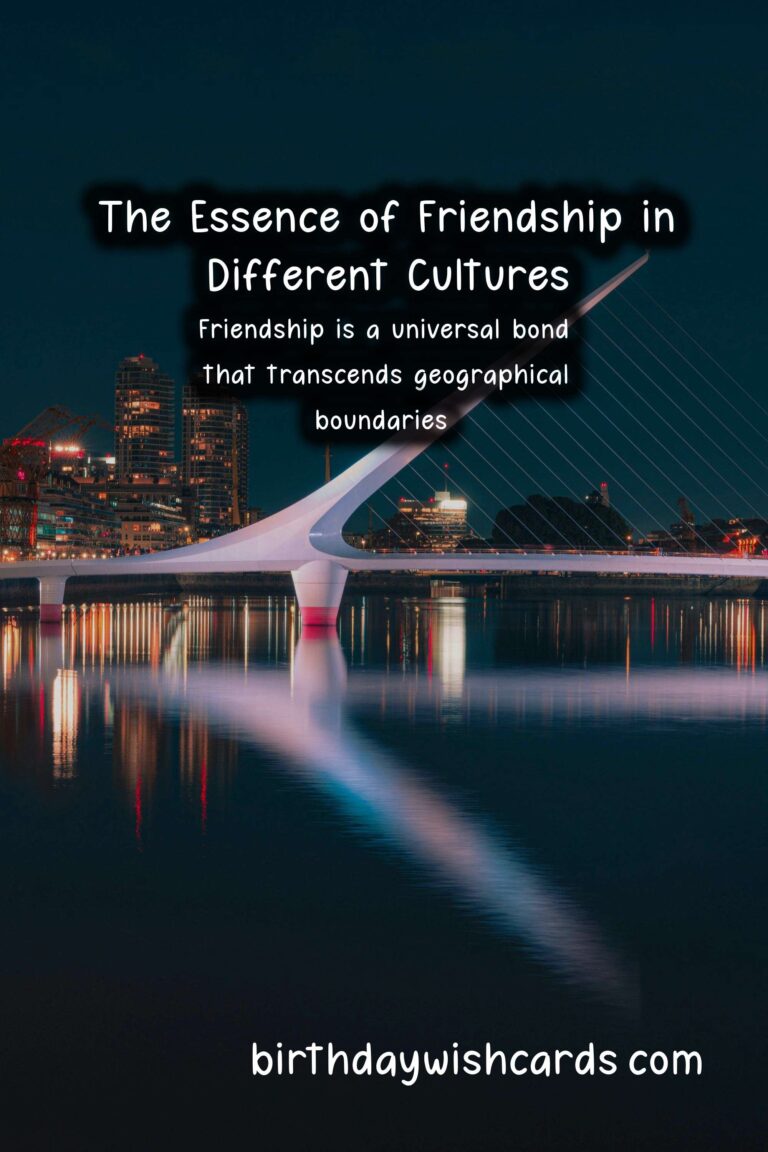
Friendship is a universal bond that transcends geographical boundaries, cultural differences, and language barriers. However, the way friendship is perceived and celebrated can vary immensely from one culture to another. Understanding the importance of friends in different cultures not only enriches our personal experiences but also promotes empathy and cross-cultural connections.
The Universal Value of Friendship
At its core, friendship is based on trust, loyalty, and mutual support. No matter where we are in the world, having friends can significantly impact our emotional health and overall well-being. Studies show that strong friendships can improve mental health, increase happiness, and even enhance longevity. In many cultures, friends are considered an extension of family, showcasing the deep-rooted significance of these relationships.
Friendship in Western Cultures
In Western cultures, friendship is often characterized by equality and mutual benefit. Friends are typically seen as equals who choose to spend time together based on shared interests and experiences. This perspective emphasizes individual choice, where friendships are often formed during school years and maintained through various life stages.
Furthermore, in many Western societies, friendships are often based on informal social gatherings, such as going out for coffee or attending social events. The emphasis on personal freedom and independence often reflects in friendships where individuals prioritize their own interests while maintaining their connections.
The Role of Friendship in Eastern Cultures
In contrasting Eastern cultures, such as those found in Asia, the concept of friendship can be more hierarchical and formal. Relationships are deeply rooted in societal norms and familial expectations. In countries like Japan and China, there is a strong emphasis on loyalty, respect, and long-term commitment in friendships.
In these cultures, the bonds of friendship may develop in environments where kinship ties are prioritized. Individuals may remain friends for life, often navigating these relationships with the context of their familial responsibilities. Activities related to friendship often include communal gatherings, food sharing, and other traditional practices that strengthen the bond.
Friendship in African Cultures
African cultures showcase the communal aspect of friendship. In many African societies, friendships extend beyond individual connections and become part of a larger community network. The concept of Ubuntu, which emphasizes interconnectedness and mutual support, epitomizes the essence of friendship in many regions across the continent.
Friendships in Africa often involve collaborative efforts, where friends assist each other in various life tasks. From communal farming to social celebrations, the importance of friends is interwoven with the fabric of society, highlighting the significance of community over individualism.
Latin American Perspectives on Friendship
In Latin American cultures, friendship is celebrated with fervor and is an essential aspect of life. The notion of ‘compadre’ reflects the importance of friendship, especially among families. Friends are often considered family members and are included in significant life events such as weddings, baptisms, and communal festivities.
Cultural phrases such as ‘mi casa es tu casa’ (my house is your house) underline the open and welcoming nature of friendships in this region. Social gatherings often include music, food, and dancing, emphasizing the joy of friendship and community.
Modern Influences on Friendship
The advent of social media has drastically transformed friendships worldwide. While it enables connections across distances, it also poses challenges for maintaining deep, meaningful relationships. In contemporary society, individuals may have many acquaintances online, but the depth of these connections can vary significantly.
Exploring Friendship Across Generations
Different generations may also view friendship through varied lenses. For instance, older generations often value loyalty and longevity in friendships, while younger generations may prioritize shared interests and personal growth.
Final Thoughts: Embracing Cross-Cultural Friendships
Understanding the importance of friends across various cultures can foster mutual respect and appreciation. Embracing the differences and similarities in friendship allows us to build deeper connections with those around us. Ultimately, no matter where we are in the world, the essence of friendship remains a vital component of our collective human experience.
Friendship is a universal bond that transcends geographical boundaries. In many cultures, friends are considered an extension of family. 

